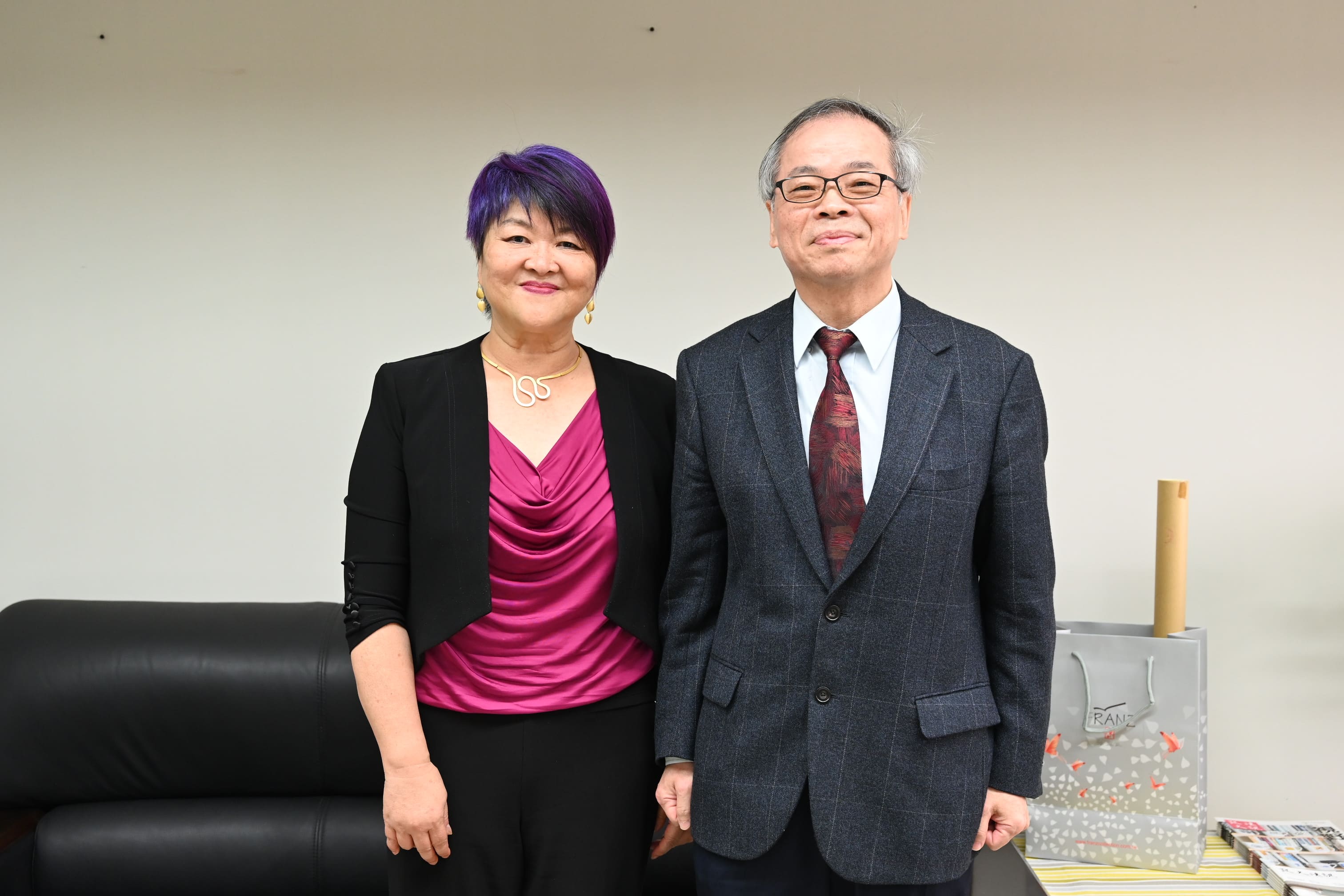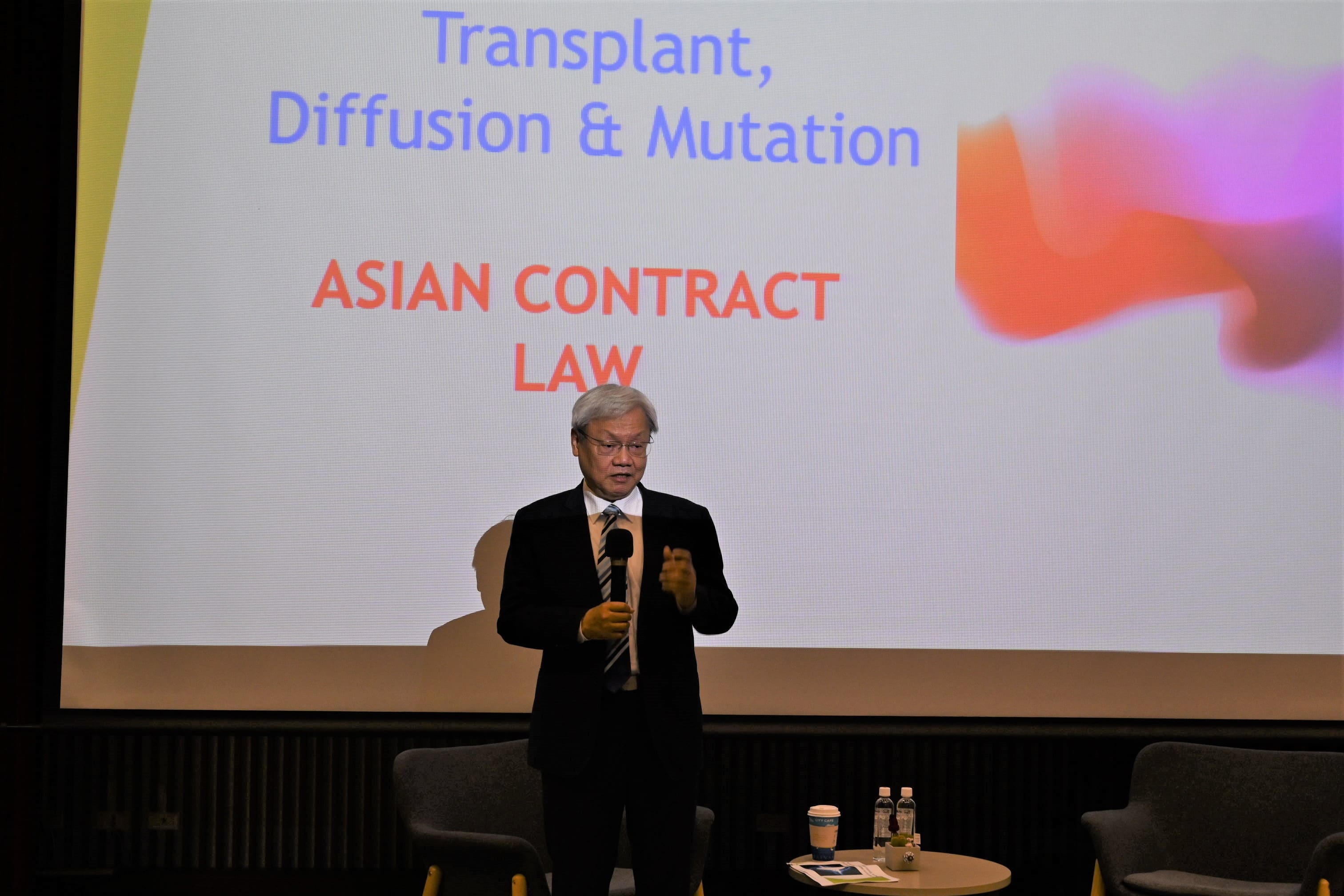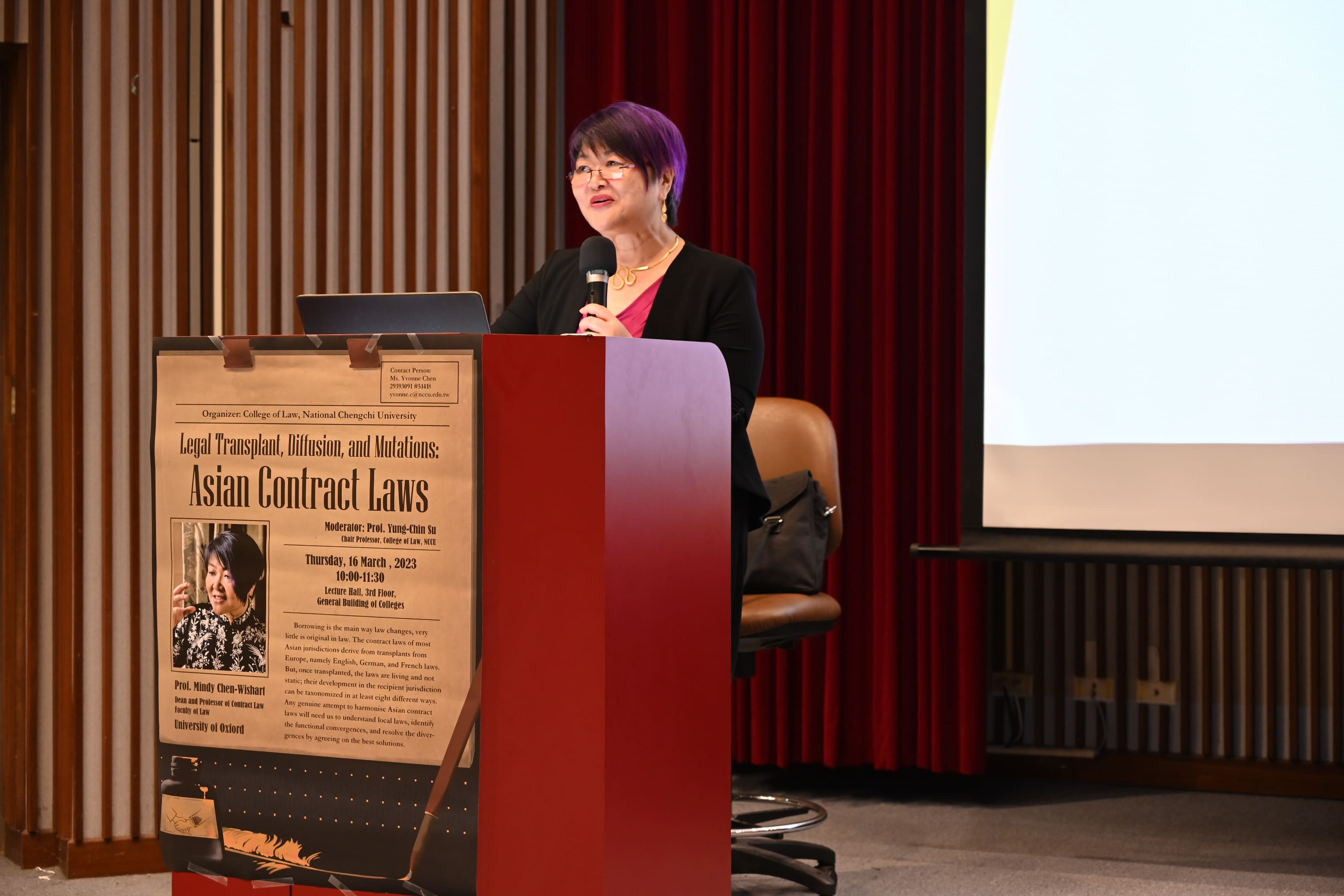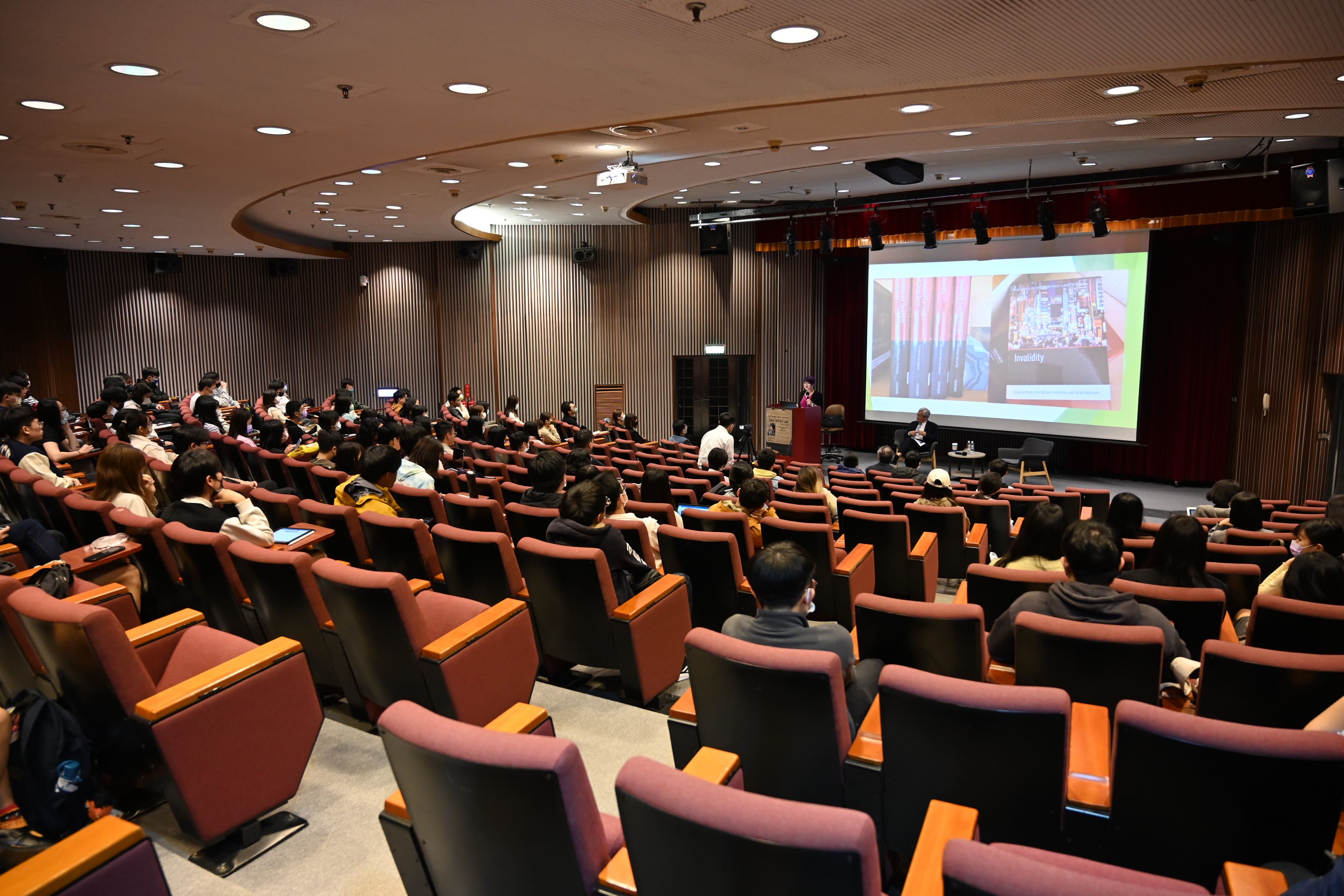
Dean of the Faculty of Law at the University of Oxford, Professor Mindy Chen-Wishart, was invited by the NCCU College of Law to deliver a speech on the topic of “Legal Transplant, Diffusion, and Mutations: Asian Contract Laws” at the Lecture Hall, General Building of Colleges on 16th March 2023. The event was moderated by Yong-qin Su, also renowned as the NCCU Chair Professor and the former vice president of the Judicial Yuan.
As introduced by Su, Chen-Wishart was born in Taiwan and had an immigrant’s journey to New Zealand and the United Kingdom. Along with a range of academic publications, she is the author of the textbook “Contract Law” and the editor of the book series “Studies in the Contract Laws of Asia”. Additionally, she also lectures in administrative law and constitutional law at Oxford, demonstrating her profound and extensive legal knowledge. To combat prejudice against BAME (Black, Asian and Minority Ethnic) academics and students, she also launched the #RaceMeToo Twitter campaign. Su expressed admiration for the contributions of Chen-Wishart in the academic field and social significance.
At the beginning of the speech, Chen-Wishart did not dive into judicial studies and legal discourse immediately. Instead, she started by telling stories from her childhood. When she was ten years old and learned that her family was moving abroad, she told her parents “You go to New Zealand. I will stay with A-Ma (grandmother).” Yet she did not have much choice. Decades later, the girl who was reluctant to leave has visited and taught at Law Schools in Germany, Australia, New Zealand, China, Japan, Thailand, Indonesia, and of course, Taiwan. “I’m always homesick for Taiwan. So, I am always delighted to be able to come back,” she said.
She then proceeded to address the inspiration behind the book series Studies in the Contract Laws of Asia, emphasizing that Asia's contribution to the global economy was rapidly increasing and that Asia’s rising powers and emerging market should not be underestimated. She stated that the 21st century is the Asian Century and that “in the globalized inter-connected world, we really need to know how the Asian region regulates its transactions.” People need to know how administrative and legislative systems of different Asian jurisdictions co-create, supplement, or oppose each other. All these reasons became significant motivation for her and other scholars to delve into the publication project of Asian contract laws. “This will be the first series of books in English accessible to the world that provides a comprehensive, modern and up-to-date account of what’s going on in the contract laws of Asia,” Chen-Wishart said.
After the brilliant speech by Chen-Wishart followed the Q&A session. In response to enthusiastic queries from the audience, Chen-Wishart addressed topics such as interpersonal relationships in the Confucian Asia, the era of AI, and the outlook for Asian law. The regulations transplanted to the receiving states continue to undergo transformations. The same provision might be applied and interpreted as A in country A while the judgment turned into B in country B because the social, cultural and political contexts in the two states were so different.
Finally, Chen-Wishart pointed out that if Asian countries want to break through the framework of their source law, their capability will not be the problem. The most crucial element is whether these jurisdictions have the confidence to create and lead. In conclusion, Su shared his research insights related to legal transplant and his reflection on several key points discussed by Chen-Wishart. Covering both rational legal topics and emotional stories, the speech opened an inspiring gateway to Asian Comparative Law for all participants and came to an end successfully. (撰文: 王彥涵)




